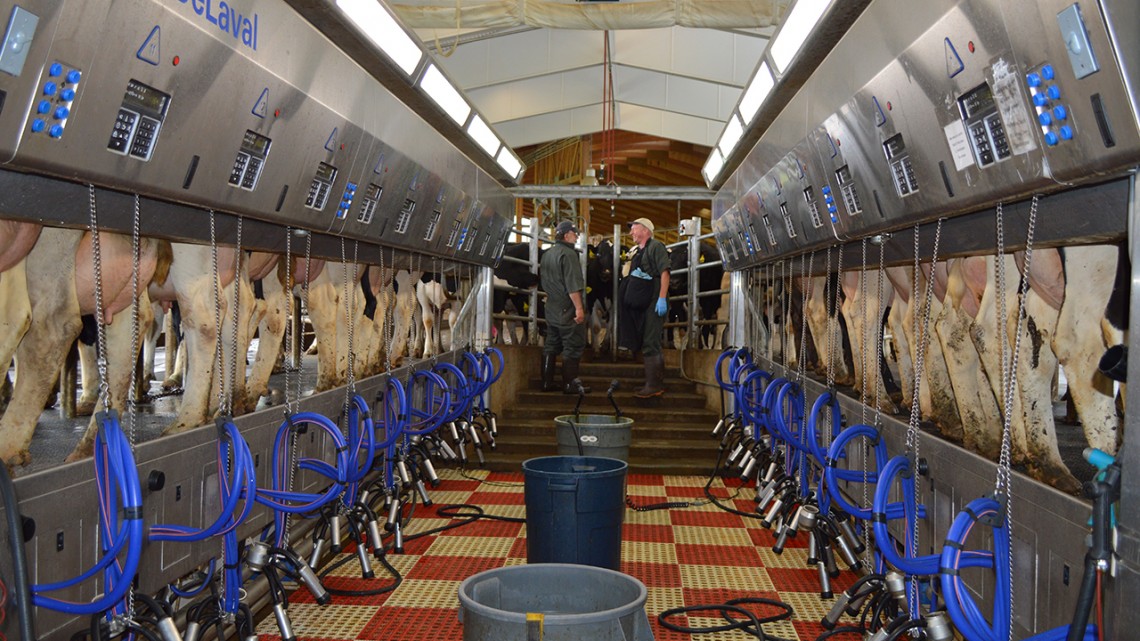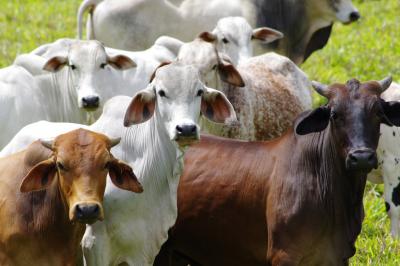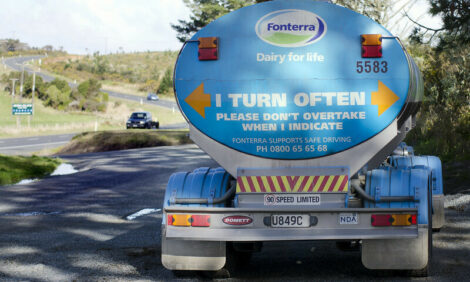



Is local or imported dairy the sustainable option for the Sahel?
Research from CIRAD has explored the environmental and socioeconomic impacts of European exports of milk to West Africa, and finds that competition from imports could undercut local dairies.The study consisted of a comparative analysis of local milk and imported milk powders - pure whole milk powders and vegetable fat-enriched (fat-filled) blends - according to criteria such as income, employment, rural development, nutritional security and environmental conservation. The findings led the authors to make several recommendations to stakeholders in this sector.
"In the Sahel countries, selling milk is a way for millions of pastoral and agro-pastoral families to improve their living conditions. However, farmers’ access to commercial markets is currently hindered by increased competition from imported milk powders", the report states.

Only 1-7 percent of local milk is collected in West Africa
According to the CIRAD study, imported powders make up the bulk of raw materials used by local dairy industries. Only 20 percent of dairy companies in West Africa collect local milk . Furthermore, this concerns only 20,000 farming families, despite “enormous market potential”, according to Guillaume Duteurtre, co-author of the study. Depending on the country, only 1 to 7 percent of milk produced locally is collected . The rest is consumed by the producers themselves or sold on rural markets.
West African dairy industries’ overwhelming reliance on imported milk can be explained primarily by the constraints associated with collecting milk from local agropastoral areas. Dairy companies have to contend with a lack of transport infrastructure, widely dispersed herds due to pastoral mobility, and low milk yields per cow. "But more than anything, powder imports have increased over the last 10 years due to the lowering of West African tariff barriers and a resurgence of exporters in the North," says Christian Corniaux, a researcher at CIRAD and co-author of the report.
Low-cost exports of fat-filled milk powders
Many European firms export blends of skimmed milk and vegetable fat in powder form, otherwise known as fat-filled powders. These powders, which are 30 percent cheaper than pure milk powders, mostly contain cheap palm oil. They are subject to very low customs duties (5 percent) upon entering the West African common market. In 2019, they represented more than two thirds of West African milk imports and more than 25 percent of "dairy products" consumed in the region (this figure rises to more than 70 percent in most West African capital cities).

Until now, these fat-filled powders have enabled local manufacturers to meet the growing demand for dairy products in West Africa. However, they have also had negative socioeconomic impacts. The report highlights in particular the lack of transparency around and traceability of these European fait-filled powders exported to West Africa, as well as their detrimental impact on the development of a good quality, sustainable local milk sector.
Changing labelling practices and names of products made from fat-filled powders
The report states that about 30 percent of products made from fat-filled milk powders consumed in West Africa do not meet Codex standards on labelling.
"The fat-filled powders contain 30 percent palm oil ," says Christian Corniaux. " However, this information is not necessarily indicated on the packaging. And products made from these blends are sold as ‘milk’ or ‘yoghurt’, which goes against Codex recommendations. These practices risk misleading consumers, and confusion between dairy products and dairy substitutes is common.”
As a result, the authors of the report suggest that product names should clearly identify those that contain these blends. International trade officials and regulators must ensure that traceability and transparency requirements are respected.
Encouraging responsible approaches from European firms
While milk fat blends provide a market for a low-cost ingredient (palm oil is 13 times cheaper than butter oil), they do not incorporate highly sustainable oils, such as certain certified palm oils. In contrast, West African livestock farming systems promote natural ecosystems that are very rich in biodiversity. These systems generate less greenhouse gas and consume less fossil energy than European dairy farming systems.

Without calling into question the importance of supplying an area like West Africa with dairy products, the researchers highlight the potential benefits of European companies adopting a responsible strategy.
"Sales of these fat-filled powders should not hinder the development of African dairy chains", stresses Guillaume Duteurtre, co-author of the study. "West Africa has a rich pastoral culture, thanks to a range of traditional dairy products and know-how, which are currently massively undervalued."
Targeting fiscal measures and incentives for local milk collection
The report concludes with examples of fiscal measures and incentives for local milk collection that could help bolster the sector. Notably, imported milk powder could be made less attractive for manufacturers, or contracts and partnerships between local dairy companies and producers could be encouraged.


